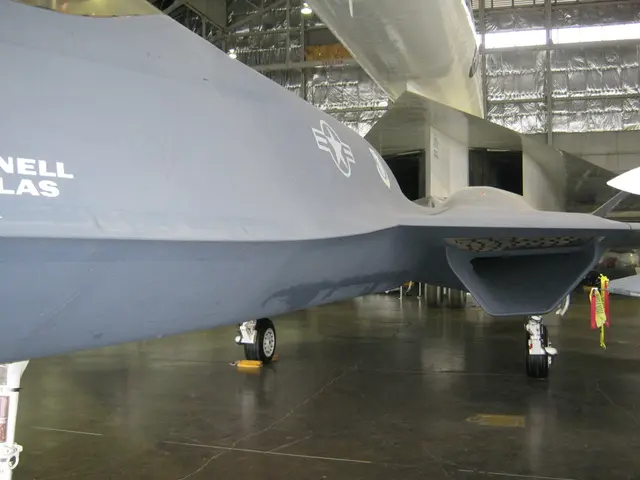Trump delays tariff confrontation with China for another 90 days
In a significant development, US President Donald Trump has extended the trade truce with China for another 90 days, marking a continuation of the ongoing negotiations between the two economic powerhouses.
The extension, signed on August 11, 2025, maintains a 10% ad valorem tariff on Chinese goods, avoiding a potential escalation that could have increased US tariffs on Chinese goods to as much as 145% and Chinese retaliatory tariffs to 125%. This decision demonstrates a cautious willingness to keep negotiations open while the national emergency trade measures remain in place.
According to a joint statement from meetings in Geneva, London, and Stockholm, the US has agreed to suspend 24 percentage points of the additional ad valorem duties imposed on Chinese imports. China, in reciprocation, has also agreed to modify its application of tariffs in this context, maintaining the trade truce.
The negotiations continue to focus on longstanding issues of trade reciprocity and national security risks, with both sides emphasizing economic stability and the possibility of higher-level talks, potentially a Trump–Xi summit later in 2025. The underlying national emergency declared in April 2025 remains, signaling that the US administration is prepared to reinstate higher tariffs if substantive progress is not made by the November deadline.
Meanwhile, US President Trump is expanding his search to replace Federal Reserve Chair Jerome Powell. Contenders include St. Louis Fed President James Bullard and former economic adviser to President George W. Bush, Marc Sumerlin. Trump is also expected to meet with his Russian counterpart Vladimir Putin potentially as early as next week.
Elsewhere, India and Brazil have moved to resist US trade pressure, a sign of how the White House's economic policies are alienating friendly nations. The IRS, which has shed more than 25,000 employees, roughly a quarter of its staff, in 2025, faces criticism over the potential impact of these losses and budget cuts on the agency's ability to operate as usual during tax season.
In other news, Beijing's exports to the US contracted in July for the fourth straight month, notching a 22% drop from a year earlier. Trump has most recently called on China to buy more soybeans from the US, and Washington is weighing imposing tariffs over China's purchases of Russian oil.
Sources: 1. https://www.whitehouse.gov/briefings-statements/president-donald-j-trump-extends-us-china-trade-truce/ 2. https://www.reuters.com/article/us-usa-china-trade-idUSKCN25W29N 3. https://www.cnbc.com/2025/08/11/trump-extends-us-china-trade-truce-for-90-days.html 4. https://www.bloomberg.com/news/articles/2025-08-11/us-china-trade-talks-extend-tariff-truce-as-deadline-looms 5. https://www.wsj.com/articles/u-s-extends-trade-truce-with-china-for-90-days-11628740973
In this context, the extension of the trade truce between the US and China can be seen as a technology and politics issue, as it involves ongoing negotiations on trade reciprocity and national security risks. The future of these negotiations might be linked to higher-level talks, such as a potential Trump–Xi summit, which could impact general news reports about international relations.
Meanwhile, the ongoing trade tensions between the US and China have wider implications, including China's export contraction to the US for the fourth straight month, and potential tariffs on Chinese purchases of Russian oil, which could affect the global oil market and technological advancements in the energy sector.




